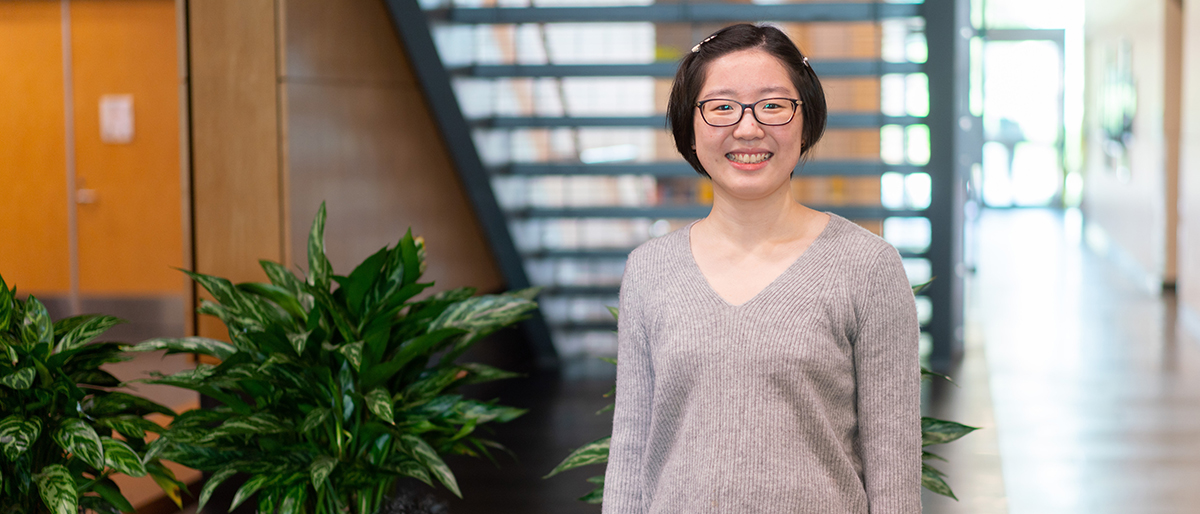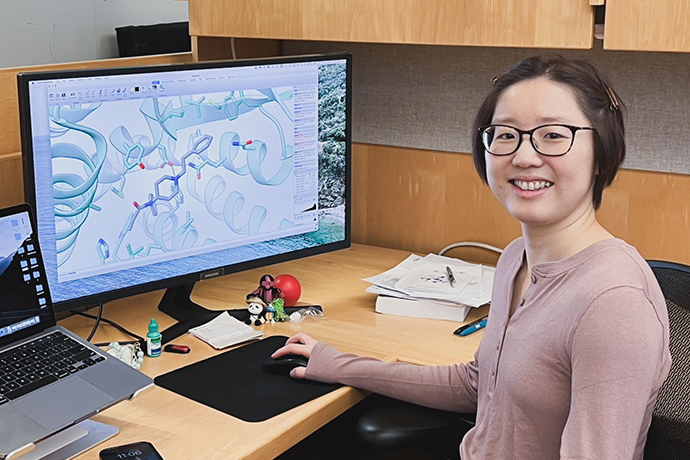Liu receives Damon Runyon Frey Award for Breakthrough Scientists

Fangyu Liu, Ph.D., Assistant Professor of Pharmacology, is one of five U.S. investigators to receive a 2025 Damon Runyon-Dale F. Frey Award for Breakthrough Scientists related to her research to discover new drug candidates to treat pancreatic, colorectal, breast, and prostate cancers.
Presented by the Damon Runyon Cancer Research Foundation, the award recognizes Damon Runyon Fellows who have exceeded the Foundation’s highest expectations and are considered most likely to make paradigm-shifting breakthroughs to transform the prevention, diagnosis, and treatment of cancer. The Frey Award includes a $100,000 grant added to the $254,000 Dr. Liu already received as a 2020-2024 Damon Runyon Fellow for her cancer research.
“My goal is to develop the next generation of cancer treatments that can specifically target aggressive cancers like pancreatic cancer while minimizing harm to healthy tissues,” said Dr. Liu, who joined UT Southwestern in January as a 2025 Cancer Prevention and Research Institute of Texas (CPRIT) Scholar. “To find these potential drugs, I use a powerful computer-based system that can rapidly screen billions of chemical compounds against a chosen protein target in just a few weeks.”
During her postdoctoral research at the University of California, San Francisco, Dr. Liu discovered compounds that modulate calcium-sensing receptors – proteins involved in certain cancers – with fewer side effects than current treatments. As part of the UTSW community, she is turning her focus to membrane enzymes, which are essential for cancer cell growth and survival. The Liu Lab has already identified promising initial inhibitors for one of the membrane enzymes it is studying.

“While there have been drug candidates targeting this enzyme in clinical trials, many have struggled with reduced effectiveness due to off-target effects. Our current focus is on optimizing the potency of these novel inhibitors to improve their selectivity and efficacy,” she said.
Through cell signaling assays, the researchers have also discovered potentiators – which increase effectiveness – for this target and are now in the process of validating and understanding these findings.
“If confirmed, these potentiators could have possible applications in regenerative medicine, opening an exciting new avenue for our research,” said Dr. Liu, who is also a member of the Harold C. Simmons Comprehensive Cancer Center.
“To my knowledge, this is one of the first times this powerful computational platform has been used to target membrane enzymes,” she added. “While membrane proteins like G protein-coupled receptors and ion channels have been extensively studied as drug targets, membrane enzymes remain relatively underexplored. I am particularly excited about the opportunity to unlock the therapeutic potential of this class of proteins. Furthermore, this work will deepen our fundamental understanding of membrane enzyme biology.”
And while her work has primarily focused on basic science, she believes the computational platform she uses has strong potential for translational applications. “Being at UT Southwestern allows me to gain exposure to clinical insights that can help shape my research and career in new and meaningful ways,” she said.
During the interview process, Dr. Liu was impressed with UTSW’s supportive and collaborative community. “It was clear that UT Southwestern fosters an environment where both basic and translational research can thrive,” she said.
It also helped that Dr. Liu already had friends working at UTSW. “Seeing how happy and fulfilled they were made my decision even easier,” she said. “It is an exciting place to be, and I am looking forward to contributing to this dynamic research community.”
Endowed Title
Dr. Liu is a Deborah and W.A. "Tex" Moncrief, Jr. Scholar in Medical Research.

